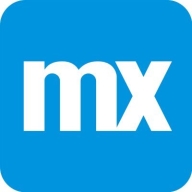

Mendix and Xamarin Platform both compete in the application development space. Mendix has an edge in rapid development and ease of integration, while Xamarin excels with cross-platform development capabilities.
Features: Mendix is recognized for its rapid development capabilities, supporting small teams to deploy applications quickly. The platform offers strong integration with SOAP, REST, and OData, and boasts a collaborative environment with a visual programming model using microflows. Xamarin Platform shines in cross-platform development, enabling application creation for iOS, Android, and Windows from a single C# codebase. Its integration with Visual Studio and .NET emphasizes significant code reuse and native app development.
Room for Improvement: Mendix users seek better document templates, UX/UI enhancements, improved master data management, and better integrations with non-relational databases. The licensing is seen as costly for smaller applications. Xamarin Platform needs performance improvements, especially for Android, enhanced debugging tools, offline capabilities, and increased support for third-party libraries. Transitioning from Xamarin to .NET MAUI presents challenges, affecting tool and library ecosystems.
Ease of Deployment and Customer Service: Mendix supports flexible deployment options across on-premises, public, private, and hybrid cloud environments. It offers a structured support experience complemented by an active user forum, although support quality can vary. Xamarin supports deployment on public and hybrid clouds with robust community support through Microsoft, but it has some documentation gaps. Customer service for both is generally praised, with Mendix offering premium support structures.
Pricing and ROI: Mendix is considered expensive for smaller businesses, with pricing based on users and applications, yet it offers ROI through reduced time-to-market. Conversely, Xamarin is more cost-effective with an open-source model, allowing smaller teams to benefit from lower entry costs, particularly with the Community Edition. While Visual Studio licensing adds expense, its cross-platform capabilities and scalability present significant value.
| Product | Market Share (%) |
|---|---|
| Mendix | 15.2% |
| Xamarin Platform | 7.3% |
| Other | 77.5% |


| Company Size | Count |
|---|---|
| Small Business | 25 |
| Midsize Enterprise | 6 |
| Large Enterprise | 23 |
| Company Size | Count |
|---|---|
| Small Business | 18 |
| Midsize Enterprise | 5 |
| Large Enterprise | 14 |
Mendix is a low-code application development platform that helps your organization accelerate its application development lifecycle. The solution is designed to enable you to create software faster by abstracting and automating the development process for better business outcomes at speed and scale. Mendix has many key capabilities, including a tailored IDE for every developer, built-in collaboration tools for team development, feedback management, agile project management, the ability to build a truly responsive design across devices, and much more.
Mendix Features
Mendix has many valuable key features. Some of the most useful ones include:
Mendix Benefits
There are many benefits to implementing Mendix. Some of the biggest advantages the solution offers include:
Reviews from Real Users
Below are some reviews and helpful feedback written by PeerSpot users currently using the Mendix solution.
PeerSpot user Somnath G., Solution Architect and LowCode Practice Lead at a tech services company, says, "What I found most valuable in Mendix is that it's very much suitable for mobile apps such as native Android or IOS supported mobile apps. The multiple features of the platform are very, very attractive and very popular. Mendix has technical features such as microflows and nanoflows. You can also access data models in the platform. These are the features that are very, very strong in Mendix. I got my hands dirty on other low-code platforms, but I have not seen such strong features in them compared to the microflows, nanoflows, and data model access that are in Mendix, including creating and integration. The platform has out-of-the-box adapters or out-of-the-box-connectors that you can integrate with different interface applications such as SAP, Salesforce, Oracle EBS, etc."
Sameer V., Consulting Manager at Deloitte, mentions, “Their native mobile capability is very good. In general, the way they launch the product has been great. Their product launching strategy is far better than any other platform. I work in OutSystems and Mendix. They tend to be more on the legacy side, OutSystems. With this solution, the product launching strategy is very, very agile. I really like when they roll out their updates, which are very, very frequent.”
Robert B., Solutions Architect at a computer software company, explains, The solution is just very quick and responsive. The initial setup is very straightforward, and those implementing the product do not have to be very technologically advanced in order to manage the process.”
Xamarin is an open-source platform for developing modern and performant applications for iOS, Android, and Windows using.NET. Xamarin is an abstraction layer that manages how shared code is communicated to the platform's underlying code. Xamarin is for developers with the two following goals:
Cross-platform sharing of code, tests, and business logic.
Writing cross-platform apps in C# with Visual Studio.
Xamarin allows developers to share an average of 90% of their program across platforms. This enables programmers to achieve native performance, look, and feel on each platform while writing all of their business logic in a single language (or reusing existing application code).
Xamarin applications can be created on a PC or a Mac and compiled into native application packages, such as an .apk file for Android or an .ipa file for iOS.
Xamarin Platform Features
Xamarin Platform has many valuable key features. Some of the most useful ones include:
Xamarin Platform Benefits
There are many benefits to implementing the Xamarin Platform. Some of the biggest advantages the solution offers include:
We monitor all Mobile Development Platforms reviews to prevent fraudulent reviews and keep review quality high. We do not post reviews by company employees or direct competitors. We validate each review for authenticity via cross-reference with LinkedIn, and personal follow-up with the reviewer when necessary.